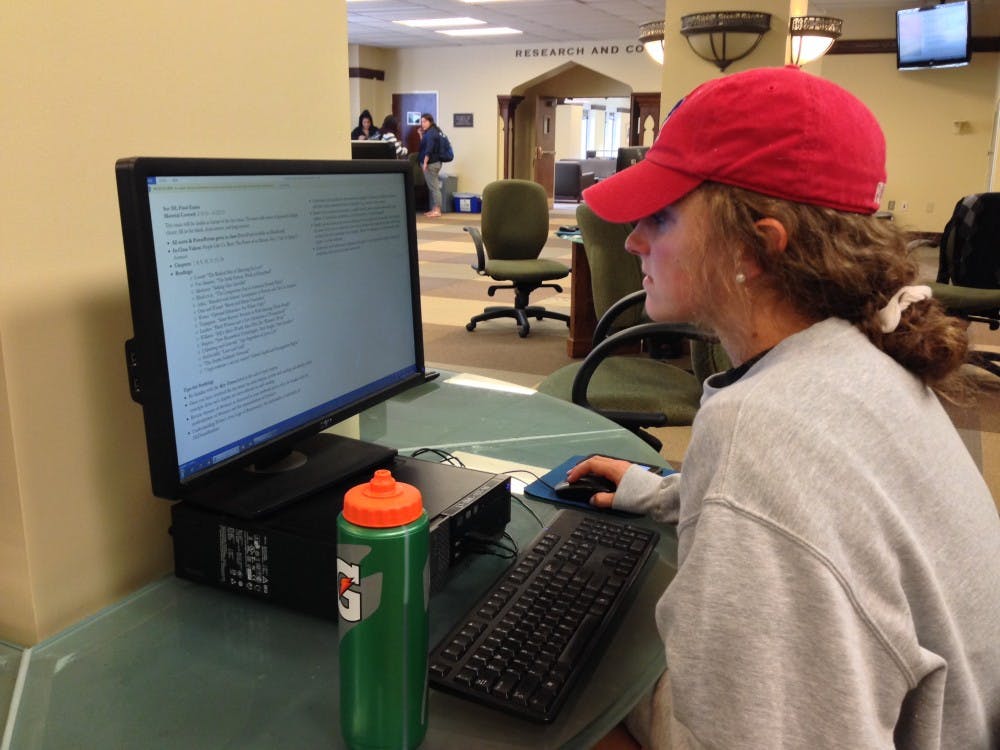In the next few weeks, the nation's college students will take part in the uphill battle known as finals week. Finals are a test of the cumulative knowledge accrued in a semester of blood, sweat and tears. To some they are a very real threat to a successful future, but to many they are the last leg in the marathon that is the semesterly workload.
This week is always enough to ruin an otherwise solid semester, but seemingly never enough to bring a GPA back from the dead; finals put the student in an uncomfortable position. In an effort to salvage a decent grade, students embark on a period of hyper-study ahead of their exams. For how long this stressful period lasts depends on both how proactive a student has been in the last half of the semester, and the length of the period in between the last day of classes and the first day of exams.
Among International universities, there appear to be two schools of thought when it comes to reviewing before finals. Many schools, Richmond included, schedule no official review period aside from the weekend in between the end of classes and the beginning of exams. It is possible to take an exam on a Monday for a class you only just finished the Friday before. This differs from other universities that pencil in a review week, colloquially known as “Dead Week,” in between classes and exams. During this time, libraries are packed and little occurs on campus aside from studying.
Here at Richmond, you would be hard pressed to find a student in the midst of finals week who wouldn’t want more time to study. We all remember the solitary hours and long nights spent reviewing, and we always believe that it would be made easier with just a little extra time or sleep. A week in between classes and finals would serve as a buffer before finals.
“More time to study means that students can put more effort into final class assignments without having to worry about not devoting enough time to exams,” sophomore David O’Neill says. “Some classes have final projects or tests, and it gets to be a difficult balance.”
O’Neill later pointed out that most schools in the country finish up in the first or second week of May, whereas the last Richmond exams are only scheduled for May 2nd. “I don’t think kids would be that disappointed to go home a week later if it meant having a less stressful finals week.”
However, not all believe that the extra time would necessarily yield better results. The University of Colorado at Boulder had to do away with their review period because students were using the time for non-academic exploits.
“I don’t trust myself to use the review week wisely,” said sophomore Jeremy Strockoz, who believes that the temptations that come with having a “free” week might overpower the urgency to study. In addition, there are advantages to having exams only a few days after classes end. “I would probably end up forgetting information in the time away from classes.”
Having had the opportunity to take exams while abroad, I have experienced both ends of the spectrum. At University of St. Andrews, one of the premier colleges in the United Kingdom, students might find themselves with weeks between when classes end and their finals begin. While I had been pacing myself throughout the semester, many of my peers had not been keeping up with their work because they knew that there would be time before exams to catch up. I am sure that many did fine, but the stress and angst in the air during “reading week” was unlike anything I had ever experienced.
When it comes to exams, I tend to think of it comparable to how you might take off a Band-Aid. You can make it a drawn out process and suffer the slow, burning pain, or you can take it all on at once and have it over with before the crisis sets in.
Here at Richmond we don’t have the swanky “Dead Week” rituals that many northern schools have, but I for one don’t mind sacrificing the potential benefits if it means lounging on the beach or at home one week sooner.
Enjoy what you're reading?
Signup for our newsletter
Support independent student media
You can make a tax-deductible donation by clicking the button below, which takes you to our secure PayPal account. The page is set up to receive contributions in whatever amount you designate. We look forward to using the money we raise to further our mission of providing honest and accurate information to students, faculty, staff, alumni and others in the general public.
Donate Now



